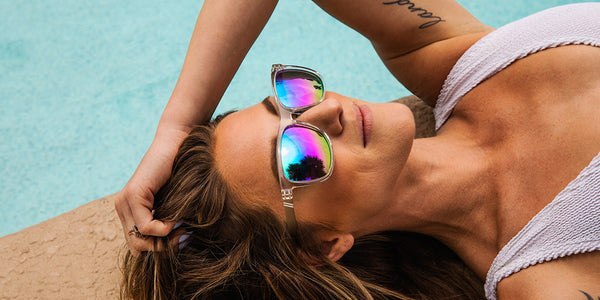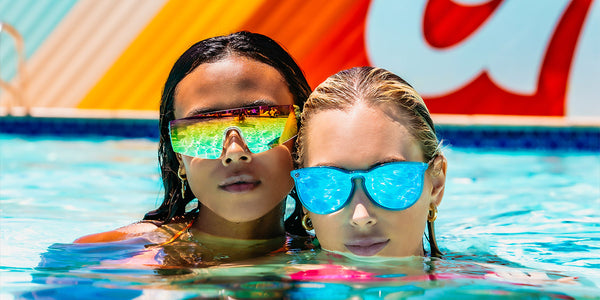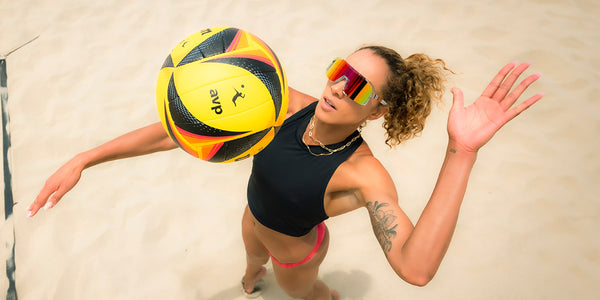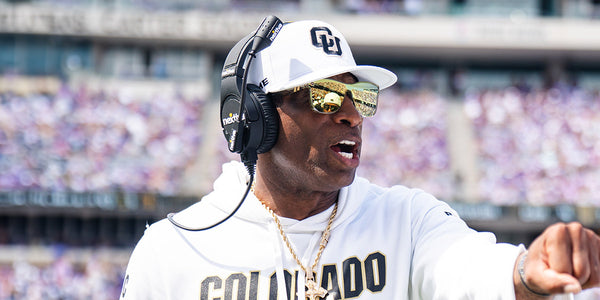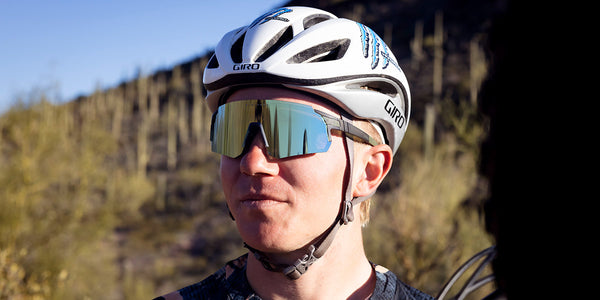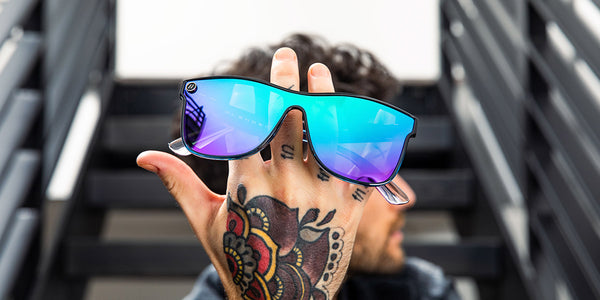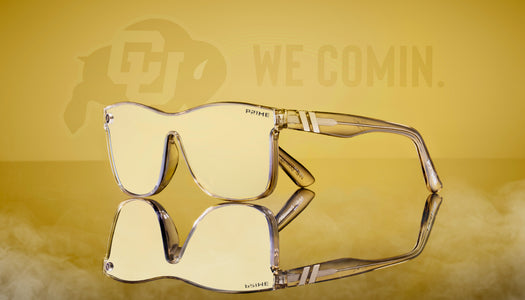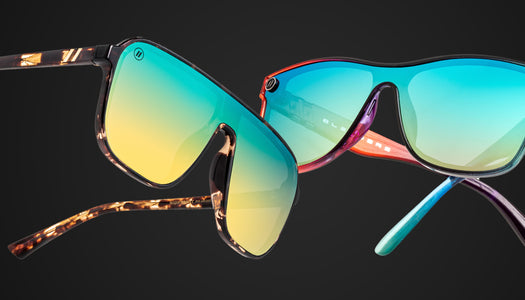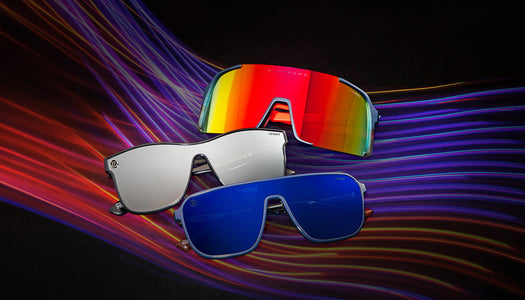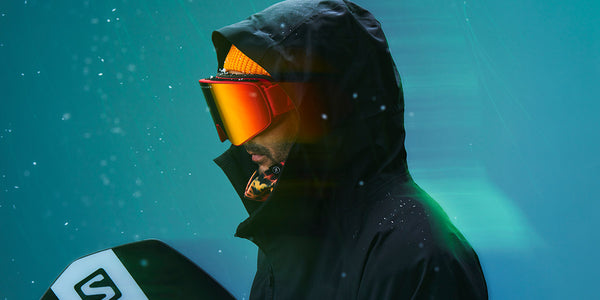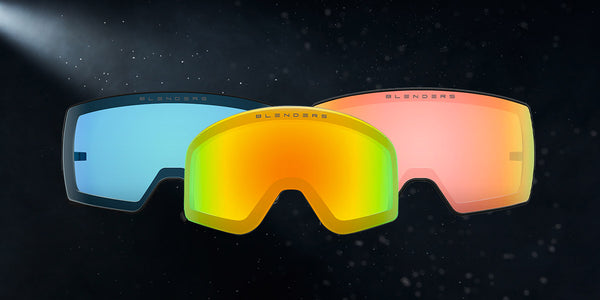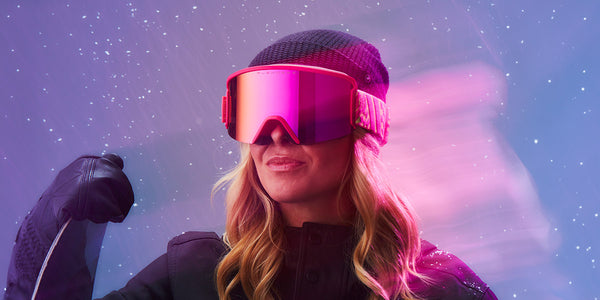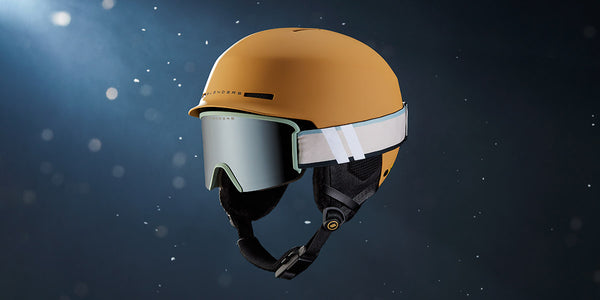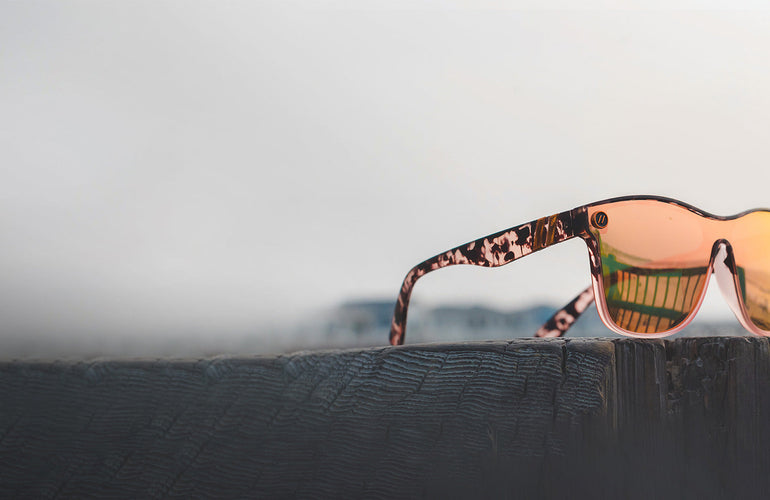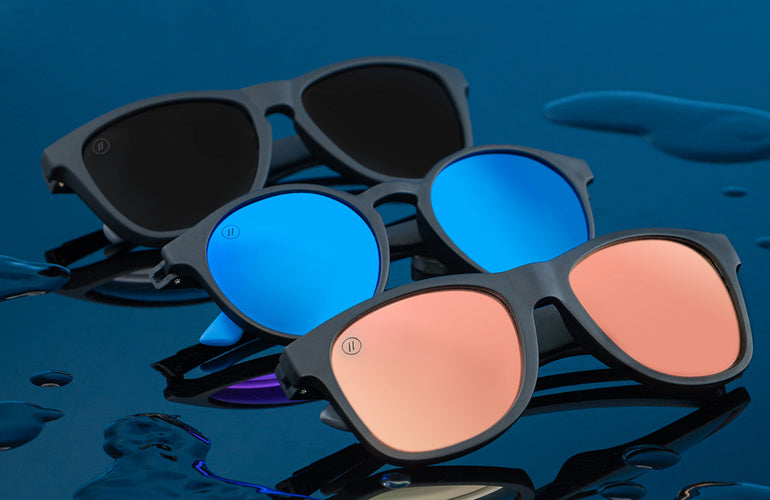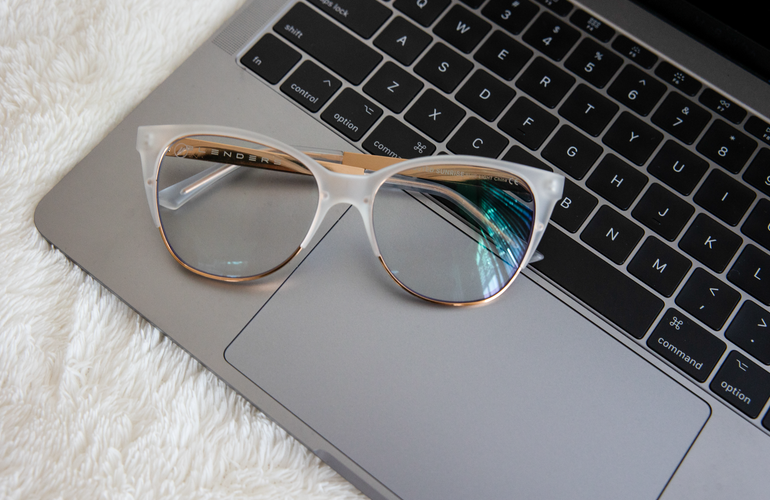What Are Mirrored Lenses?
Mirrored sunglasses reflect glare away via a thin metallic layer on the outside of the lenses. As a result, mirrored sunglasses reduce the amount of light entering the eyes. This makes them function as one-way mirrors when observed from the outer side of the sunglasses. The lenses may look opaque via the reflective coating, but they let enough light through for clear vision with minimal eyestrain.
Why Should I Use Mirrored Lenses?
As with all sunglasses, mirror shades can help protect your eyes from the sun’s damaging rays. They feature a special anti-reflective coating on the outside of the lenses, which bounces light rays and glare away from the sunglasses and the eyes. At the same time, mirrored sunglasses stand out as an excellent option for certain sports and outdoor adventures.

Ideally, this style is suited for outdoor activities in bright conditions where glare is a concern—like shredding down a mountain on a sunny day. They also offer several distinctive advantages:
Durability
With thin metal layers, mirrored sunglasses are more durable. Some versions even feature an additional scratch-resistant layer.
Mirror sunglasses & sports
Mirror lens sunglasses lend themselves to skiing, watersports, sandboarding and flying sports such as microlighting and gliding, where glare can affect both performance and safety. Hiking and cycling can also involve spending hours in the sun. Even early in the morning, UV rays can already cause damage.
Mirror sunglasses & driving
By reducing glare from the road, car hood and other cars, mirrored lenses work better than standard, non-reflective lenses and also help minimize eye strain.
What’s The Difference Between Mirrored & Polarised Lenses?
Polarised sunglasses remove glare from hard, reflective surfaces while mirrored sunglasses remove glare from hard surfaces, metal, and water. As well, mirrored lenses are more resistant to wear and tear.
The color of the reflective layer on mirror sunglasses is not necessarily the same as the lens color. Wearing blue mirrored sunglasses, for instance, doesn't equate to seeing the world in brilliant hues of blue. Lens color involves far more than pure aesthetics. Different lens colors serve different purposes, and depending on the environment, the tint of sunglasses can enhance depth perception and reduce eye fatigue.
Brown: Facilitates a broader range of colors and contrasts. Brown shades reduce glare without dimming vision, even in overcast conditions.
Grey: Reduces glare and helps maintain depth perception. Perfect for activities that require precise eyesight.
Green: Ensures minimal color distortion and enhanced light contrast. Green lenses brighten shadows and minimize glare, making them ideal in bright conditions.
Yellow: An excellent choice for cloudy skies, as they provide better depth perception and a good contrast range for improved visibility. On bright days, however, yellow distorts color and doesn't offer much glare protection.
Pink/rose: Popular for snow sports. They offer a brighter, clearer view of the surrounding environment whether the sun is shining or not.
Frames
Shape and style can crucially impact your comfort and eye protection—and even boost your everyday performance. The aviator's teardrop shape helps protect against the glare of sea, sand and snow; wraparound frames block rays that would normally sneak in from the sides of sunglasses. For standard mirror sunglasses, go bigger for better protection.
Blenders Eyewear offers an array of mirrored sunglasses with different frames and lens colors, ready to be worn for your next adventure.
